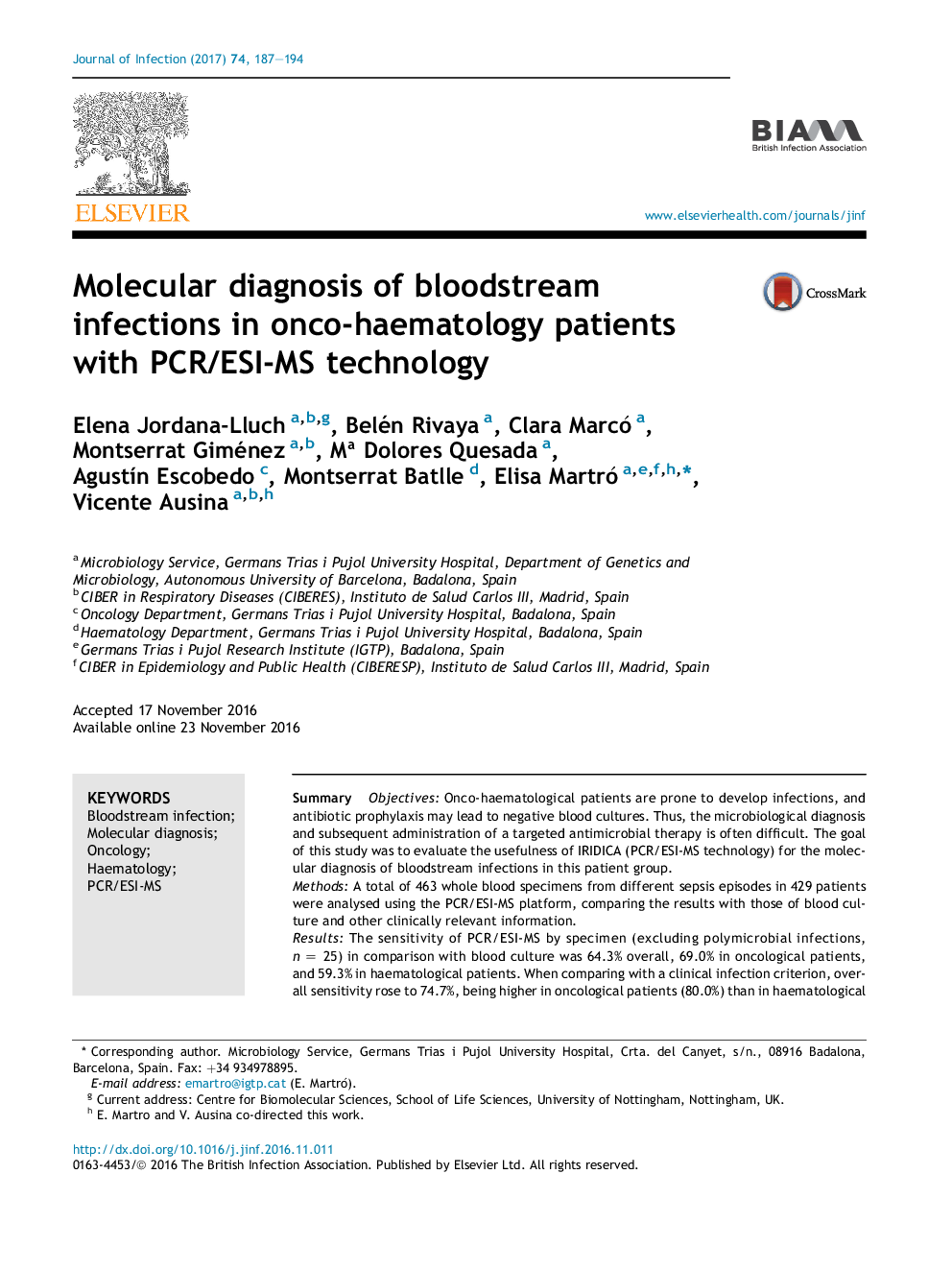| Article ID | Journal | Published Year | Pages | File Type |
|---|---|---|---|---|
| 5668762 | Journal of Infection | 2017 | 8 Pages |
â¢This is the first evaluation of IRIDICA for the molecular diagnosis of sepsis in both oncology and haematology patients.â¢IRIDICA detected 44 relevant microorganisms not isolated by culture and missed 31.â¢IRIDICA showed better sensitivity in oncological than in haematological patients (81.3 vs. 71.4%, by specimen).â¢The use of IRIDICA could lead to an earlier administration of targeted antibiotic therapy, especially in oncology patients.
SummaryObjectivesOnco-haematological patients are prone to develop infections, and antibiotic prophylaxis may lead to negative blood cultures. Thus, the microbiological diagnosis and subsequent administration of a targeted antimicrobial therapy is often difficult. The goal of this study was to evaluate the usefulness of IRIDICA (PCR/ESI-MS technology) for the molecular diagnosis of bloodstream infections in this patient group.MethodsA total of 463 whole blood specimens from different sepsis episodes in 429 patients were analysed using the PCR/ESI-MS platform, comparing the results with those of blood culture and other clinically relevant information.ResultsThe sensitivity of PCR/ESI-MS by specimen (excluding polymicrobial infections, n = 25) in comparison with blood culture was 64.3% overall, 69.0% in oncological patients, and 59.3% in haematological patients. When comparing with a clinical infection criterion, overall sensitivity rose to 74.7%, being higher in oncological patients (80.0%) than in haematological patients (67.7%). Thirty-one microorganisms isolated by culture were not detected by IRIDICA, whereas 42 clinically relevant pathogens not isolated by culture were detected moleculary.ConclusionsPCR/ESI-MS offers a reliable identification of pathogens directly from whole blood. While additional studies are needed to confirm our findings, the system showed a lower sensitivity in onco-haematological patients in comparison with previously reported results in patients from the Intensive Care Unit.
